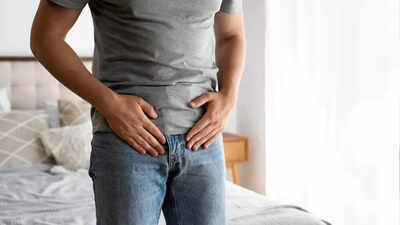4 Warning Signs You Shouldn’t Ignore: Get a Prostate Test Immediately

A gland about the size of a walnut, the prostate produces a chemical that is similar to that found in sperm. It goes through two distinct phases: the first begins around the time of puberty and continues for the next twenty or so years, and the second begins around the time of maturity (around the age of 25).....CONTINUE READING THE FULL STORY HERE
In some men, the development of a prostate may go unreported because it causes no symptoms. If the prostate gets big enough, it may start to have an effect on nearby structures, potentially causing symptoms in those around the patient.
If you suffer from BPH, you may find it difficult to urinate because your prostate is pressing against your urethra. In addition, bladder irregularities are linked to an enlarged prostate. For instance, the bladder wall may become thicker, making defecation difficult. There may be an increase in urinary symptoms as a result.
If you’re experiencing any of these 4 symptoms, a prostrate exam is something you should look into, says Healthline.
1. Urinating a lot.
This includes a lot of bathroom breaks, especially during the night (nocturia). As an additional connotation, it suggests a sense of urgency, as one must rush to the restroom lest one’s bladder burst.
2. Urinary retention.
The inability to start urinating despite feeling the urge to do so. Infrequently, the flow of urine may be weak or sluggish. Dripping urine is also a possibility.
Sometimes you may experience a tiny dribble that you simply can’t stop. It’s possible that the strain on your urethra will make it feel like urine is leaking out of your body. Males who suffer from an enlarged prostate experience this frequently.
3. Urine contains blood.
If you notice any blood in your urine or sperm, seek immediate medical attention. Any sign of blood in the prostate, urinary tract, or reproductive system should prompt an immediate trip to the doctor; it could be a sign of cancer.
4 Constant lower back discomfort and stiffness.
Pain or stiffness in the tissues around the prostate may be a sign of infection or something more serious. Pain or pressure in the perineum and discomfort around the penis and scrotum are the most common locations to report discomfort (the space between the scrotum and anus).
Lower back, hip, pelvic, and thigh pain or stiffness are all symptoms that some men experience when dealing with prostate cancer.
